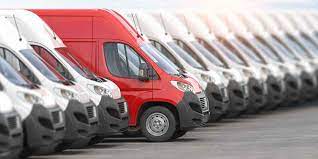Commercial Fleet Insurance: Protecting Business Vehicle Operations
Running a business with multiple vehicles comes with significant responsibilities and risks. Whether you operate a delivery service, construction company, or any business requiring a fleet of vehicles, protecting your mobile assets is crucial for operational continuity and financial security. Commercial fleet insurance provides comprehensive coverage designed specifically for businesses managing multiple vehicles.
What is Commercial Fleet Insurance?
Commercial fleet insurance is a specialized insurance policy that covers multiple business vehicles under a single comprehensive policy. Rather than insuring each vehicle individually, fleet insurance streamlines coverage for businesses operating five or more vehicles, offering both convenience and cost-effectiveness.
This type of insurance is essential for businesses whose operations depend on vehicle mobility, providing protection against accidents, theft, damage, and liability claims that could otherwise devastate a company's finances.
Who Needs Commercial Fleet Insurance?
Delivery and Logistics Companies
Businesses relying on timely deliveries need robust protection for their vehicle fleets, ensuring operations continue even after incidents.
Construction and Trade Businesses
Companies using vans, trucks, and specialized vehicles for on-site work require comprehensive coverage for their mobile workforce.
Sales and Service Teams
Businesses with field representatives or service technicians need protection for vehicles used in client visits and service calls.
Transportation Services
Taxi companies, ride-sharing services, and passenger transport businesses require specialized fleet coverage.
Emergency Services
Private ambulance services, security companies, and other emergency response businesses need reliable fleet protection.
Key Benefits of Commercial Fleet Insurance
Cost Efficiency
Insuring multiple vehicles under one policy typically costs less than individual policies, with bulk discounts and streamlined administration reducing overall expenses.
Simplified Management
One policy, one renewal date, and centralized claims management make fleet insurance administration significantly easier than managing multiple individual policies.
Comprehensive Coverage
Fleet policies can include various coverage types, from basic third-party liability to comprehensive protection including business interruption coverage.
Flexible Vehicle Management
Adding or removing vehicles from your fleet is straightforward, allowing your insurance to adapt as your business grows or changes.
Types of Coverage Available
Third-Party Liability
The legal minimum coverage protecting against claims from other parties for injury or property damage caused by your vehicles.
Comprehensive Coverage
Protection against theft, vandalism, fire, and accidental damage to your own vehicles, regardless of fault.
Collision Coverage
Specific protection for damage resulting from collisions, whether with other vehicles or stationary objects.
Business Interruption
Coverage for lost income when fleet vehicles are out of service due to covered incidents.
Goods in Transit
Protection for cargo and equipment being transported in your fleet vehicles.
Driver Coverage
Protection extending to authorized drivers, including temporary or substitute drivers.
Factors Affecting Fleet Insurance Costs
Fleet Size and Vehicle Types
Larger fleets may qualify for better rates, while vehicle types and values significantly impact premiums.
Driver Records
The driving history and experience of all fleet drivers directly affects insurance costs.
Usage Patterns
How vehicles are used, including mileage, routes, and operating hours, influences risk assessment.
Industry Type
Some industries carry higher risks than others, affecting premium calculations.
Safety Measures
Implementing driver training programs, vehicle tracking systems, and safety protocols can reduce premiums.
Claims History
Your business's previous claims experience significantly impacts future insurance costs.
Risk Management for Fleet Operations
Driver Training and Screening
Implement comprehensive driver training programs and maintain strict hiring standards for fleet drivers.
Vehicle Maintenance
Regular maintenance schedules reduce breakdown risks and demonstrate responsible fleet management to insurers.
Technology Integration
GPS tracking, dash cameras, and telematics systems can improve safety and potentially reduce insurance costs.
Safety Policies
Develop and enforce clear policies regarding vehicle use, including mobile phone restrictions and rest requirements.
Regular Reviews
Conduct periodic reviews of your fleet needs, driver performance, and insurance coverage to ensure optimal protection.
Common Fleet Insurance Mistakes to Avoid
Underestimating Coverage Needs
Don't sacrifice essential coverage to reduce costs – inadequate protection can be far more expensive than comprehensive coverage.
Ignoring Driver Management
Failing to properly screen, train, and monitor drivers can lead to increased claims and higher premiums.
Overlooking Policy Details
Understand exclusions, deductibles, and coverage limits to avoid surprises during claims.
Neglecting Regular Reviews
Fleet needs change over time – regular policy reviews ensure your coverage remains appropriate.
Choosing the Right Fleet Insurance Provider
Industry Experience
Select insurers with proven experience in your specific industry and fleet type.
Claims Service
Evaluate the insurer's claims handling process, response times, and customer service quality.
Coverage Options
Ensure the provider offers comprehensive coverage options that match your specific business needs.
Risk Management Support
Look for insurers offering additional services like driver training resources and safety programs.
Financial Stability
Choose financially stable insurers with strong ratings to ensure they can meet their obligations.
Making a Fleet Insurance Claim
Immediate Response
Ensure driver safety, secure the scene, and contact emergency services if necessary.
Documentation
Gather comprehensive evidence including photos, witness statements, and incident details.
Notification
Contact your insurance provider promptly to report the incident and begin the claims process.
Cooperation
Work closely with your insurer throughout the investigation and settlement process.
Follow-Up
Monitor claim progress and maintain records of all communications with your insurance provider.
The Future of Fleet Insurance
The fleet insurance landscape continues evolving with technological advances, changing regulations, and new business models. Telematics, electric vehicles, and autonomous driving technologies are reshaping how fleet risks are assessed and managed.
Staying informed about these developments and working with forward-thinking insurance providers ensures your fleet protection remains current and effective.
Protecting Your Business Operations
Commercial fleet insurance is more than just a legal requirement – it's a crucial business protection strategy. The right coverage protects your vehicles, drivers, cargo, and business operations while providing peace of mind that allows you to focus on growing your business.
Don't leave your fleet operations vulnerable to unexpected incidents. Comprehensive commercial fleet insurance ensures your business can continue operating even when the unexpected occurs.


 0330 127 2333
0330 127 2333
